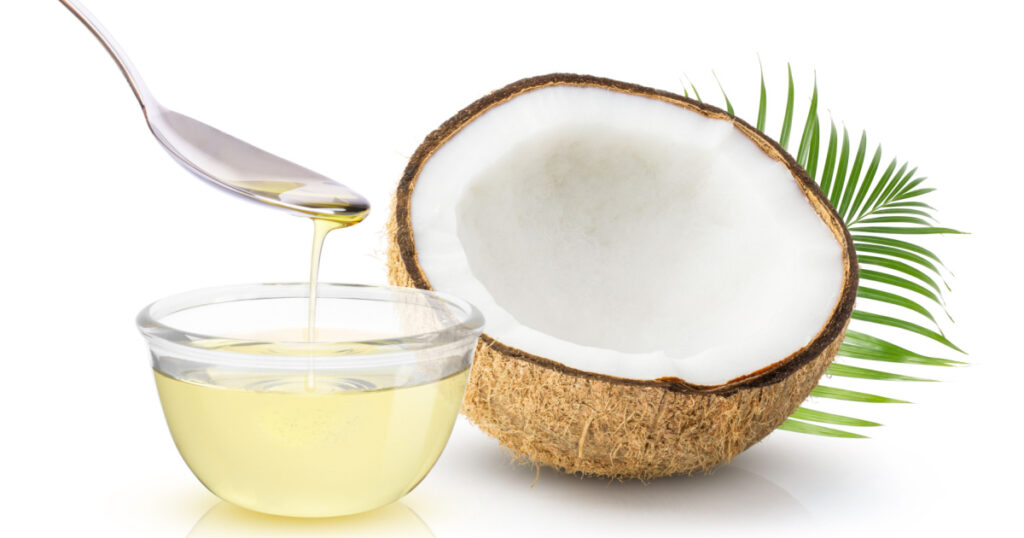Inflammation in the body can have detrimental effects on our health. It can contribute to various chronic health conditions, not to mention just leaving us not at our best. Harvard gut doctor Dr. Jaqueline Wolf, has identified four specific inflammatory foods that she recommends avoiding. Remove these from your regular diet and watch how much healthier and more energetic you feel.
Harvard Doctor Says No To These 4 Inflammatory Foods

The old saying you are what you eat continues to ring true. As we learn more about inflammation and its devastating impact on your health, we learn that what you eat is one of the biggest factors that can increase or decrease systemic, chronic inflammation. Dr. Wolf wrote a special article for CNBC about the specific four foods she avoids that cause inflammation. Check your kitchen for these and consider tossing them in the bin. (1)
1. Highly Processed Coconut and Palm Oil

Coconut and palm oil, while commonly used in cooking and food preparation, contain high levels of saturated fats. Consuming excessive amounts of saturated fats can trigger inflammation in the body and increase the risk of heart disease. Dr. Wolf suggests opting for healthier cooking oils like olive oil, which contains monounsaturated fats and has anti-inflammatory properties.
Healthy Alternative: Extra-virgin olive oil or flaxseed oil. These oils contain healthy fats, including omega-3 fatty acids, as well as antioxidants and other inflammation-fighting compounds.
Read: 15 Changes In Your Health You Should Never Ignore
2. Fatty Meats

Fatty meats, such as beef, pork, and processed meats, are known to be high in saturated fats as well. These fats can promote inflammation and contribute to the development of heart disease and other chronic conditions. While it is okay to eat these every once in a while, she advises you to avoid them being a part of your regular diet. Dr. Wolf advises substituting fatty meats with lean protein sources like skinless poultry, fish, and plant-based proteins such as beans or lentils.
Healthy Alternatives: Skinless poultry, fish, beans, and lentils.
3. Highly Processed Foods

Highly processed foods often contain an array of artificial additives, preservatives, and unhealthy trans fats. These additives can trigger inflammation in the body. Dr. Wolf advocates for a diet rich in whole foods, such as fruits, vegetables, whole grains, and nuts, which are packed with essential nutrients and have natural anti-inflammatory properties.
Healthy Alternatives: Fruits, vegetables, whole grains, and nuts. Essentially, foods that don’t come pre-packaged or have a short, chemical-free ingredient list.
4. Sugary Drinks

Sugary beverages like soda, energy drinks, sports drinks, and sweetened juices are not only high in added sugars but also lack nutrients. Consuming excessive amounts of added sugars can lead to chronic inflammation and increase the risk of obesity, diabetes, and heart disease. Dr. Wolf recommends replacing sugary drinks with herbal tea, infused water, or simply water flavored with fresh fruits or herbs.
Healthy Alternatives: Herbal tea, infused water, or water flavored with fresh fruits or herbs.
Read: 7 Teas That Help Reduce Inflammation In The Body
What Is Inflammation?

Inflammation is a vital process that occurs in the body as a response to injury or infection. It is a part of the immune system’s defense mechanism, aiming to protect and heal the affected area. During inflammation, blood vessels widen, allowing more blood to flow to the site of injury or infection. This increased blood flow brings immune cells, such as white blood cells, to the area, which helps to eliminate pathogens and repair damaged tissues. Inflammation is typically characterized by redness, swelling, warmth, and pain in the affected area. While acute inflammation is a necessary and temporary response, chronic inflammation can be harmful and may contribute to various diseases, such as rheumatoid arthritis and cardiovascular conditions. (2)
The Bottom Line

With an understanding of the impact of inflammation on our health, it becomes essential to avoid foods that promote it. Harvard gut doctor Dr. Jaqueline Wolf suggests eliminating coconut and palm oil, fatty meats, highly processed foods, and sugary drinks from our diets. Instead, she encourages incorporating healthier alternatives such as olive oil, lean proteins, whole foods, and hydrating beverages. By making these dietary adjustments, we can help reduce inflammation and support overall well-being.
